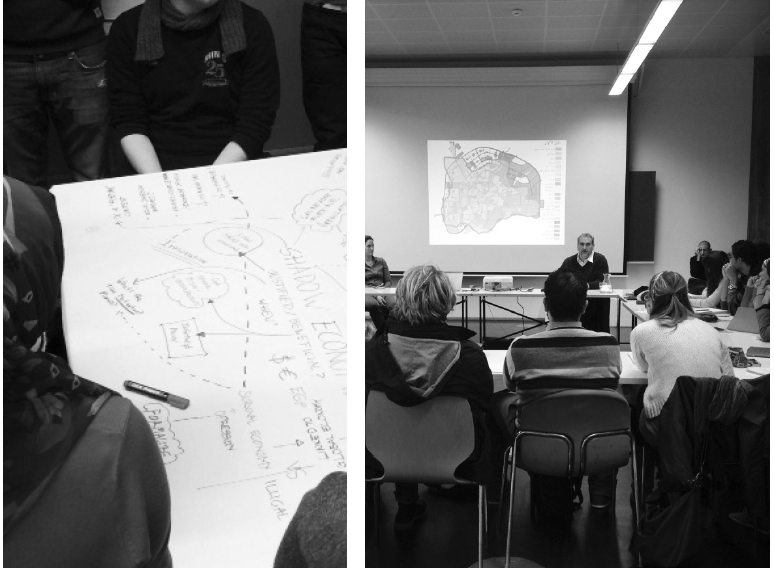
Urban Planning I – This lecture is based on the premise that international urban planning is an inherently political activity, which requires not only a critical and reflexive attitude to mainstream planning theory and history, but also to the current challenges of contemporary urbanisms and theories. The lecture is an invitation to examine urban planning practices and the underlying thoughts of what planning is or should be based on a range of international planning examples. Students are encouraged to critically question their assumptions regarding urban and social contexts and their ideas regarding the role of planning and planners in shaping these. The lecture includes case studies and theoretical perspectives from the global North and South and aims to set up a productive dialogue between both – theory and practice.
In the first part of the lecture, an overview of some of the most important debates and dichotomies of contemporary urban transformation and development are provided, including climate change, urban growth & shrinkage, globalization & neoliberalization, and social diversity. In addition to providing this overview, the ways in which these debates are reflected in planning practice are explored. It also deals with several cross-cutting issues that have played an important role in planning such as participation, exclusion & inclusion, formality & informality, and adaptation & mitigation. Approaches from planning practice are used to highlight different theoretical approaches.
In the second part of the lecture, several strategic visions and paradigms that guide decision making in planning practice are presented. This includes ethical as well as normative issues that underpin international planning.
Regional Planning I – For lecture description please refer to the Ilias portal.


